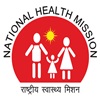Rashtriya Kishore Swasthya Karyakram (RKSK)
Adolescents (253 million) comprise nearly one-fifth of India’s total population as per census 2011. Of the total adolescent population, 12 percent belong to the 10-14 years age group and nearly 10 per cent are in the 15-19 years age group. Adolescent is a very promising phase of life. Government of India recognizes the need to provide the best possible support and care to adolescents so that they realize their full potential in life. Compulsory education at least up to 14 years of age, opportunities for higher education and learning vocational/ professional skills, access to health care and prostration from coercion or violence are some ways in which our government is committed to provide an enabling environment for adolescents.
The health and well- being of the adolescent population is a key determinant of any country’s overall development. Supporting adolescent in reducing barriers to access education, health and opportunities for the growth and development will help India realize its demographic bonus, as healthy adolescents are important resources for the economy.
The Adolescent health strategy is one such initiative in this direction. The adolescent health strategy has six priorities:
1. Nutrition, 2. Sexual and Reproductive health (SRH),3. Non-Communicable Diseases (NCDs),
4. Substance misuse, injuries and violence, 5. Gender based violence (GBV) 6. Mental health.
RKSK has been introduced under NHM with a range of services for adolescent to be delivered through both service delivery points and outreach activities. This means that an adolescent can access these services at the health facilities and through the service providers available in the community. In Uttarakhand the program was launched on 23rd Sep 2014.
Some of the intervention under the program are:
• Adolescent Friendly Health Services.
• Menstrual Hygiene Scheme (MHS) .
• Weekly Iron Folic Acid Supplementation (WIFS).
RKSK Program Team consists of one State RKSK Consultant, six District RKSK Coordinators and 74 Dedicated Adolescent Health Counselors.
• A total of 64 Adolescent Friendly Health Clinics (AFHCs) have been established in Uttarakhand state out of which 56 are established in RKSK Districts and 8 in Non RKSK Districts.
• AFHC distribution in Health Facilities – Medical Colleges (3); District Hospitals (12); Sub-district Hospital (3); Community Health Centers (46);
• Integrated 24×7, 104 Helpline for Adolescents
• Output: Around 10,000 trained service providers/change partners including Medical Officers, ANM’s, ASHA’s, Counselors & Peer Educators (of which )Peer Educators (now Sathiya) –8800 identified and trained across 51 blocks in six districts (of total 95 blocks in 13 districts)

